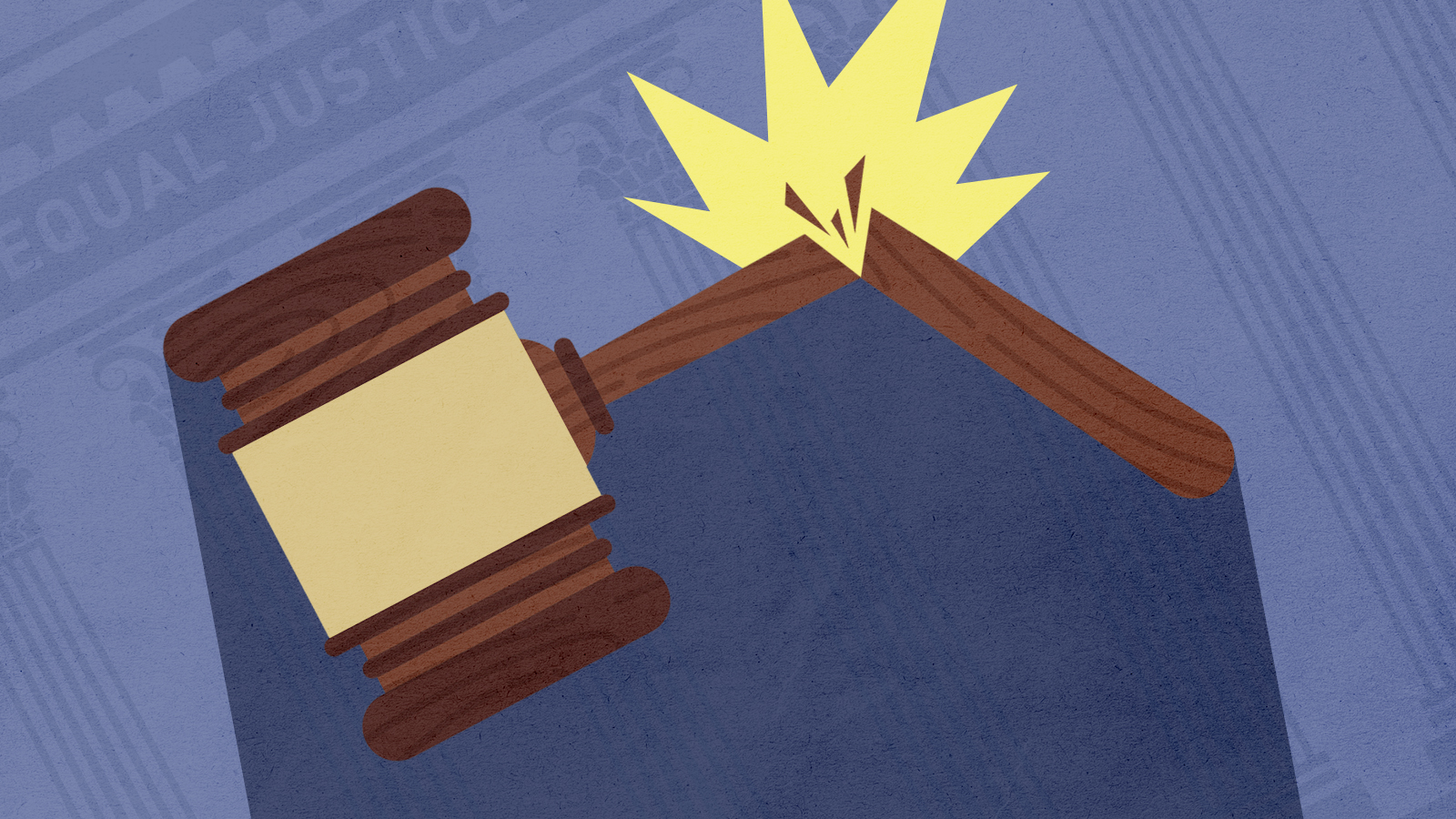Why the Supreme Court's popularity suddenly matters


A free daily email with the biggest news stories of the day – and the best features from TheWeek.com
You are now subscribed
Your newsletter sign-up was successful
The Supreme Court isn't very popular these days. The court's approval rating has slipped to just 40 percent, Gallup reported Thursday, its lowest since 2000. The court's refusal to block Texas' new anti-abortion law likely contributed to the slide — in July, before that ruling, approval was 9 points higher.
Usually the court is impervious to such concerns. Justices have lifetime appointments, and, as Gallup notes, SCOTUS approval often dips after controversial rulings. Popularity rises and popularity falls, but the court endures.
Yet this time might be different — and more consequential. Gallup also found 37 percent of Americans think the court is "too conservative," a record high up from a low of 20 percent in 2016. That's not a one-off bump, and the present figure nearly equals the 40 percent of Americans who think the court's ideological balance is "about right." Meanwhile, only about 20 percent Americans say the court is "too liberal."
The Week
Escape your echo chamber. Get the facts behind the news, plus analysis from multiple perspectives.

Sign up for The Week's Free Newsletters
From our morning news briefing to a weekly Good News Newsletter, get the best of The Week delivered directly to your inbox.
From our morning news briefing to a weekly Good News Newsletter, get the best of The Week delivered directly to your inbox.
The Supreme Court is often controversial, of course, but for three decades, a plurality of Americans were content with its ideological status quo. Thanks to former President Donald Trump's three appointees, however, the Supreme Court has swung sharply to the right in the last five years, and public approval of its philosophical balance swung in kind. One more high-profile conservative ruling — say, a vote to overturn Roe v. Wade — could end many Americans' trust in the institution for good.
That possibility arrives while the court and its workings are under great scrutiny. Progressives have pushed to pack the court with liberal justices or to strip its authority as the last word on constitutional authority. President Biden doesn't seem much interested in going down those roads, but he has appointed a commission to examine possible reforms. Justices seem to be feeling the heat: Amy Coney Barrett and Clarence Thomas have both stepped forward in recent weeks to defend their institution. Changes could be coming.
What those changes look like depends significantly on the court. Chief Justice John Roberts has spent his career guiding the court rightward, albeit slowly and carefully to limit backlash. It's not clear he can keep pursuing stability and conservative drift. What happens next also depends on the electorate: Democratic voters historically haven't been as court-focused as Republicans, but that changed in 2020, and there are signs the abortion ruling crystallized the issue for left-of-center voters. The Supreme Court usually doesn't have to worry about its popularity. Now might be the time to start.
A free daily email with the biggest news stories of the day – and the best features from TheWeek.com
Joel Mathis is a writer with 30 years of newspaper and online journalism experience. His work also regularly appears in National Geographic and The Kansas City Star. His awards include best online commentary at the Online News Association and (twice) at the City and Regional Magazine Association.
-
 Can the UK take any more rain?
Can the UK take any more rain?Today’s Big Question An Atlantic jet stream is ‘stuck’ over British skies, leading to ‘biblical’ downpours and more than 40 consecutive days of rain in some areas
-
 The UK expands its Hong Kong visa scheme
The UK expands its Hong Kong visa schemeThe Explainer Around 26,000 additional arrivals expected in the UK as government widens eligibility in response to crackdown on rights in former colony
-
 One great cookbook: Joshua McFadden’s ‘Six Seasons of Pasta’
One great cookbook: Joshua McFadden’s ‘Six Seasons of Pasta’the week recommends The pasta you know and love. But ever so much better.
-
 Epstein files topple law CEO, roil UK government
Epstein files topple law CEO, roil UK governmentSpeed Read Peter Mandelson, Britain’s former ambassador to the US, is caught up in the scandal
-
 Iran and US prepare to meet after skirmishes
Iran and US prepare to meet after skirmishesSpeed Read The incident comes amid heightened tensions in the Middle East
-
 Israel retrieves final hostage’s body from Gaza
Israel retrieves final hostage’s body from GazaSpeed Read The 24-year-old police officer was killed during the initial Hamas attack
-
 China’s Xi targets top general in growing purge
China’s Xi targets top general in growing purgeSpeed Read Zhang Youxia is being investigated over ‘grave violations’ of the law
-
 Panama and Canada are negotiating over a crucial copper mine
Panama and Canada are negotiating over a crucial copper mineIn the Spotlight Panama is set to make a final decision on the mine this summer
-
 Why Greenland’s natural resources are nearly impossible to mine
Why Greenland’s natural resources are nearly impossible to mineThe Explainer The country’s natural landscape makes the task extremely difficult
-
 Iran cuts internet as protests escalate
Iran cuts internet as protests escalateSpeed Reada Government buildings across the country have been set on fire
-
 US nabs ‘shadow’ tanker claimed by Russia
US nabs ‘shadow’ tanker claimed by RussiaSpeed Read The ship was one of two vessels seized by the US military
